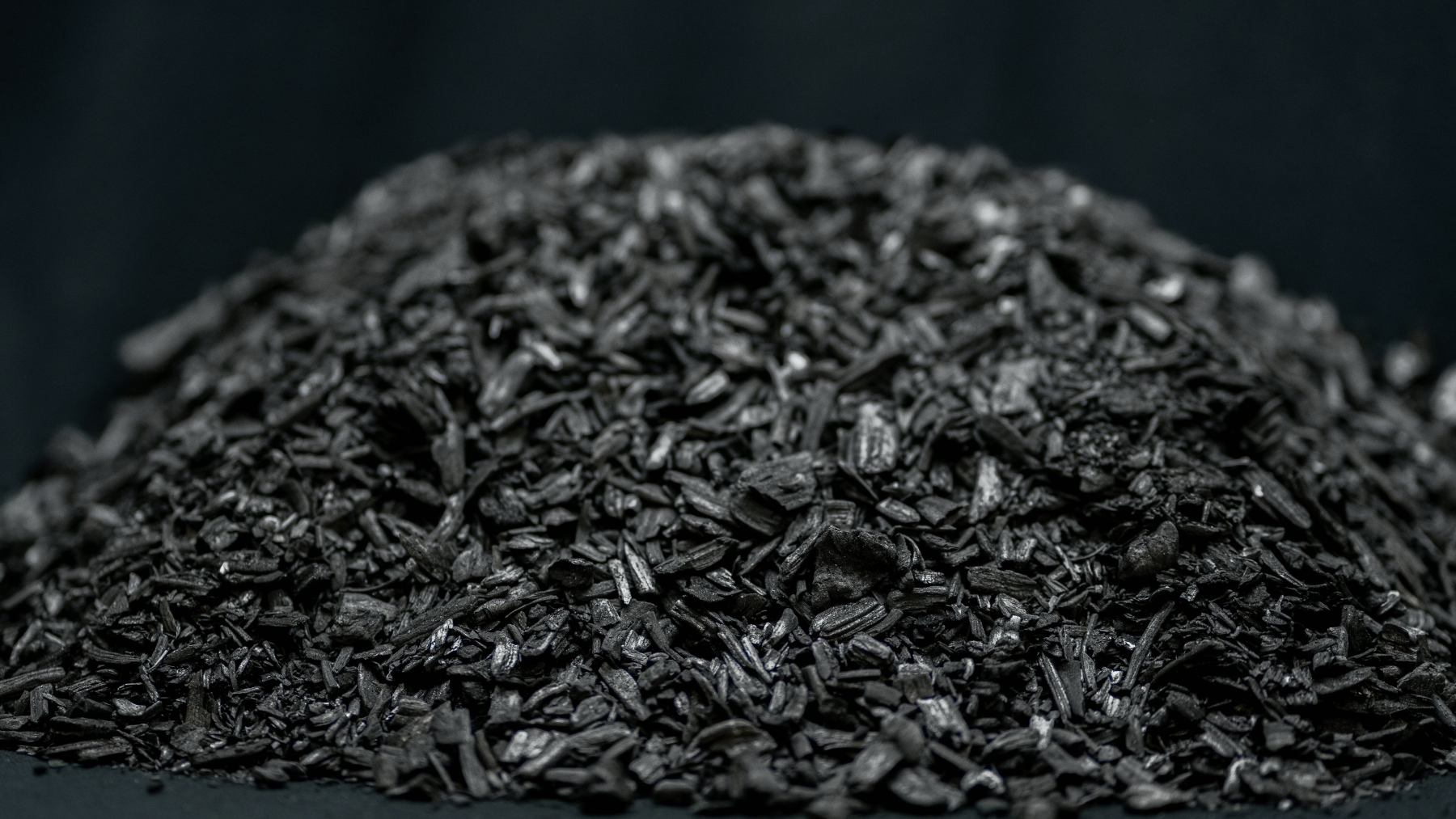Biochar redefined: TerraCoal® adds value to substrates
In commercial horticulture, growing media play a key role in efficient, high-yield plant production. At the same time, they must increasingly meet sustainability criteria without compromising on quality and functionality. This is where TerraCoal comes in: as a new substrate component, Klasmann-Deilmann’s high-quality biochar offers real advantages in crop management and paves the way for climate-neutral substrates.
Key benefits
TerraCoal is a structurally stable biochar produced mainly from wood-based raw materials using a pyrolysis process. As a component in substrates, it offers key benefits: TerraCoal improves the substrate structure, protects nutrients from leaching and promotes air capacity as well as biological activity in the substrate.
Key benefits at a glance:
- High structural stability – optimal drainage, even with long cultivation times
- Improved air capacity – for secure oxygen supply to the roots
- Buffering of nutrients – less leaching losses, greater efficiency
- Microbial active – supports healthy plant growth
These properties make TerraCoal the ideal addition to modern substrate mixtures – especially where peat-reduced or peat-free formulations are required.
Peat reduction without risk
More and more horticultural companies are turning to substrates with a balanced proportion of alternative raw materials – also to promote sustainable development in their own operations. TerraCoal adds to the range of proven components such as wood fibres, green compost, coir or bark products.
„In practical trials, our formulations with TerraCoal show consistently high crop performance,“ says Dr Sebastian Kipp, Director Innovations. „TerraCoal therefore fulfils our commitment to harmonise ecological requirements and professional high quality.“
Fewer emissions during operation
The special value of TerraCoal lies in its function as a permanent carbon sink: the biochar stores CO₂ and offsets the emissions of other substrate components. To achieve this net climate neutrality (‘net zero’), Klasmann-Deilmann calculates exactly how much TerraCoal needs to be added to each substrate recipe.
This makes the substrate an effective lever for greater climate protection in horticultural operations.
- Calculable compensation of emissions
- Climate performance also certifiable in future
- Clear sustainability signal to the market and end customers
Ideal for crops in contact with the soil
TerraCoal is particularly interesting for crops in which the substrate is partially or even completely transferred into the soil – for example in landscaping, for container crops and vegetable young plants that are subsequently planted out. This is because the biochar’s soil-improving properties can be fully exploited in these applications.
„We are not talking about an additive without agronomical benefits. TerraCoal is a powerful component that stabilises crops, physically improves the substrate and at the same time helps to improve the carbon footprint“, says Dr Sebastian Kipp.
First substrate mixes available
Klasmann-Deilmann already offers a number of tried and tested mixes with TerraCoal. Numerous other formulations are in the pipeline, to provide growers with substrates that support climate-neutral horticulture. Options are also available for grow bags. Our expert advisors will be happy to help you choose the right substrate or develop specific solutions for your requirements. Get in touch today!
